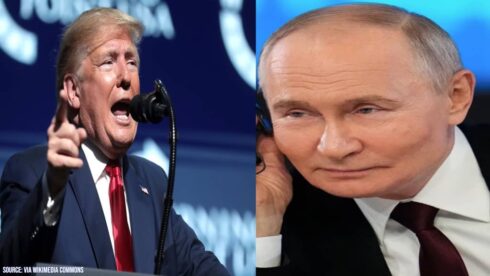U.S. President-elect Donald Trump’s claim of being able to end the war in Ukraine “in 24 hours” has come under intense scrutiny after Russian Foreign Minister Sergey Lavrov dismissed his proposed peace strategies. Lavrov’s remarks highlight the complexity of the ongoing conflict and the geopolitical dynamics at play, exposing the limitations of Donald Trump’s diplomatic ambitions. Reports surfaced detailing Donald Trump’s unofficial peace plan, which allegedly involved postponing Ukraine’s NATO membership by 20 years and deploying British and European peacekeeping forces in Ukraine. Lavrov was unequivocal in rejecting these ideas, stating that they failed to address Russia’s core security concerns.
Lavrov emphasized that such proposals do not represent official U.S. policy and dismissed them as unviable. “We are not happy, of course, with the proposals made by members of the Donald Trump team to postpone Ukraine’s admission to NATO for 20 years and to station British and European peacekeeping forces in Ukraine,” Lavrov told Russia’s TASS news agency. His sharp criticism underscores Russia’s steadfast opposition to Western military presence near its borders.
Russia Demands Binding Agreements to Resolve Ukraine Conflict
Russian Foreign Minister Sergey Lavrov has emphasized the need for “reliable and legally binding agreements” as a prerequisite for resolving the Ukraine conflict. He underlined that addressing the root causes of the war comprehensively is essential for any meaningful progress. Lavrov dismissed peace proposals lacking such guarantees as inadequate, reflecting Russia’s insistence on securing its strategic interests. This stance underscores Moscow’s broader goal of achieving long-term security assurances, particularly concerning NATO’s eastward expansion and Western involvement in Ukraine.
Lavrov also criticized the absence of formal communication from Donald Trump’s team regarding a potential settlement. He labeled the leaked proposals as unserious and insufficient to warrant meaningful consideration. Lavrov’s remarks signal that Russia expects significant concessions from the West to re-engage in dialogue. This highlights the Kremlin’s firm position and the challenges of negotiating with a nation deeply entrenched in its geopolitical priorities. Any proposal perceived as superficial or dismissive of Russia’s demands is likely to face outright rejection.
Geopolitical Realities: The U.S.-Russia Divide
The Russian Foreign Minister’s statements also reflect the deep-seated mistrust between the United States and Russia. Lavrov pointed to the bipartisan consensus in Washington supporting policies to deter Russia as a major obstacle to improved relations.
“Even if Donald Trump tries to relaunch bilateral ties, he will have to swim against the stream,” Lavrov said. This sentiment highlights the challenges any U.S. administration would face in attempting to reconcile with Russia, particularly against the backdrop of widespread support for Ukraine within the U.S. political landscape.
Criticism of Trump’s Diplomatic Claims
Donald Trump’s boast that he could end the war in Ukraine swiftly has been met with skepticism from experts and political observers. Critics argue that his claims oversimplify the complexities of the conflict and ignore Russia’s aggressive foreign policy and territorial ambitions.
“Russia is an aggressive, dictatorial nation,” one analyst noted. “They’re not going to roll over just because Donald Trump asks nicely.” Lavrov’s outright rejection of Donald Trump’s ideas lends weight to such criticisms and raises questions about the viability of Donald Trump’s foreign policy strategies.
Ukraine’s Position: Determination to Join NATO
Ukraine has consistently emphasized its desire to join NATO as a means of securing its sovereignty against Russian aggression. Donald Trump’s proposal to delay this membership runs counter to Ukraine’s strategic priorities and could weaken its position in negotiations.
By suggesting a 20-year postponement, Donald Trump risks alienating Ukraine and undermining its efforts to strengthen ties with Western allies. Lavrov’s reaction underscores how such proposals could further entrench divisions rather than pave the way for peace.
The Fragility of Diplomatic Solutions
Lavrov’s rejection of Donald Trump’s unofficial proposals highlights the fragility of diplomatic efforts to end the Ukraine conflict. Russia’s insistence on legally binding agreements and its mistrust of Western intentions pose significant barriers to peace.
While Donald Trump’s claims may resonate with his supporters, the realities of international diplomacy and Russia’s entrenched positions make his assertions appear overly simplistic. As the war in Ukraine continues, the path to a resolution remains as complex and elusive as ever.














